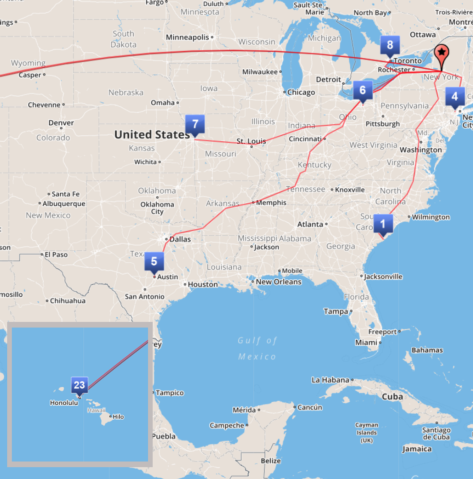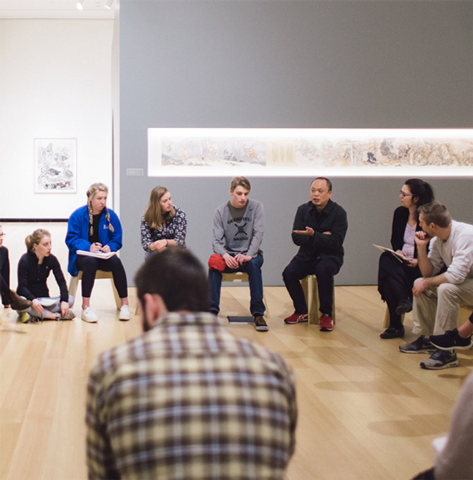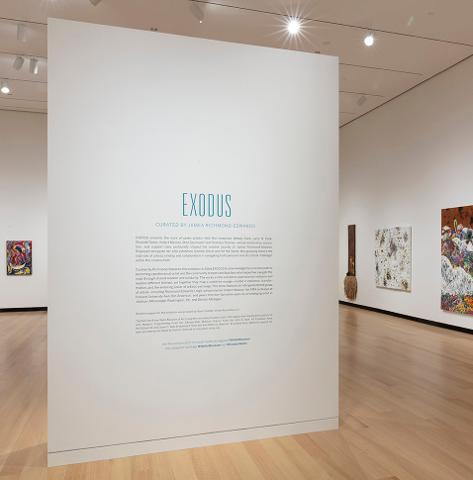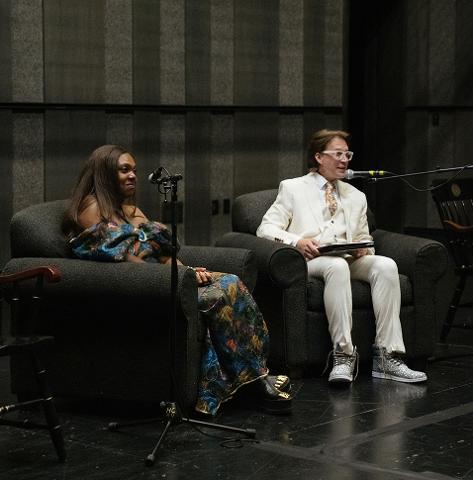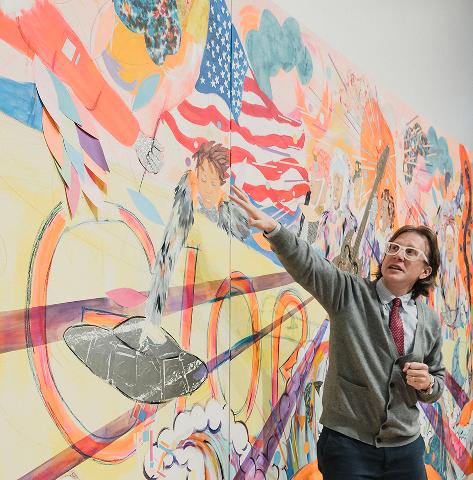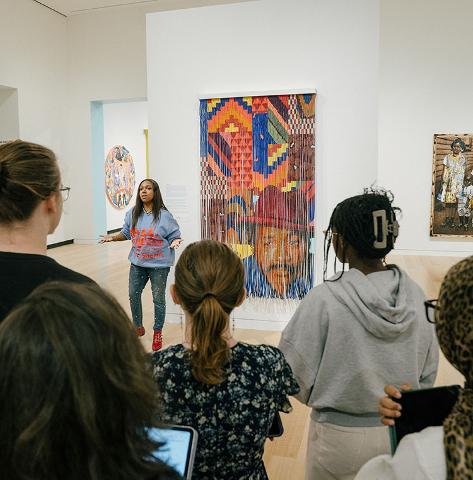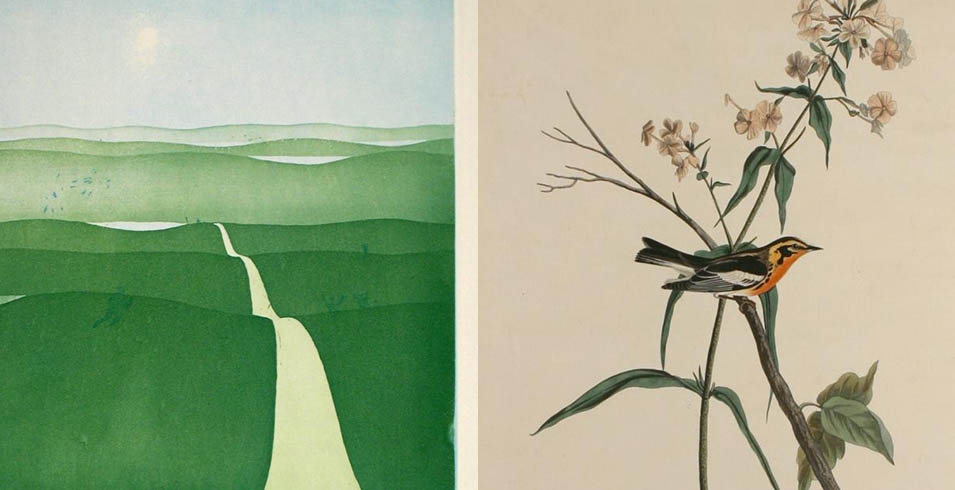
Wednesday, June 29, 2022
I began working as an education assistant at the Wellin just after the spring semester had ended. My first task was to browse through our online collection of about 3,000 pieces and decide which works were suitable for reproducing as posters as part of a giveaway for our incoming first-year students. I was asked to create a collection of works that would represent the museum and the breadth of objects we have in our permanent collection. While looking through the collection, I noticed that I was drawn to pieces I felt represented the people I had met on campus.
Coming into college, I had established some expectations for the people I would meet. I assumed that I would be living with athletes, I would be led through my orientation trip by people who love the outdoors, and I would encounter “artsy” people in my humanities and art classes. Throughout the year I noticed that the cultural niches found at Hamilton College are consistent across grades and generally a good jumping-off point in getting to know the different interests of the student body as a whole.
With this in mind, I further refined my research for the posters by predicting the interests and aesthetics of the incoming first-year students to show them that the museum is here to reflect and expand their interests, education, and aesthetic pursuits. I ended up choosing fourteen pieces that I had to whittle down to a list of ten. To do this, I enlisted the help of my friends who were still on campus at the time. We sat down over lunch and talked about how the pieces would appeal to people with different interests. By incorporating artworks that would appeal to those who may not frequent the museum, we hoped to invite students to visit the Wellin without experiencing any type of pressure or expectations. Once I collected the opinions of my peers, I got to work captioning and organizing the photos before sending them off to Liz Shannon, our Collections Curator. That’s when I uncovered a problem.
As it turns out, copyright is complex, and Liz informed me that not everything on my list was eligible to be made into a poster. I had to narrow my list even more. I decided which pieces were worth contacting the artist for based on the resources available about them. For example, on my initial list, I had a piece called The Day After Tomorrow by Koosje Wagenaar. Although I fell in love with the piece, I decided it wasn’t worth pursuing because of the lack of information about the artist. The project is still ongoing as I wait for the artist's responses about copyright. In the meantime, I added quite a few pieces from the public domain that I anticipate will be popular, including Robert Havell’s Blackburnian Warbler.
Despite the hiccups I encountered, I’m excited to see this project come to fruition. I’ll feel especially rewarded when I walk by our dorms' iconic big windows next semester and see the posters I chose displayed in people's rooms.
Image Credits:
Koosje Wagenaar. The Day After Tomorrow, 1972. Etching and aquatint, 25 ½ x 20 in. (64.8 x 50.8 cm). Ruth and Elmer Wellin Museum of Art at Hamilton College, Clinton, NY. Gift of Elbert Lenrow, Class of 1923. © Koosje Wagenaar (left)
Robert Havell. Blackburnian Warbler, plate 135 from “The Birds of America,” 1832. Engraving and aquatint with hand-coloring, 31 5/16 x 22 3/16 in. (79.5 x 56.4 cm). Ruth and Elmer Wellin Museum of Art at Hamilton College, Clinton, NY. Gift of William G. Roehrick, Class of 1934, H1971.© Robert Havell (right)


